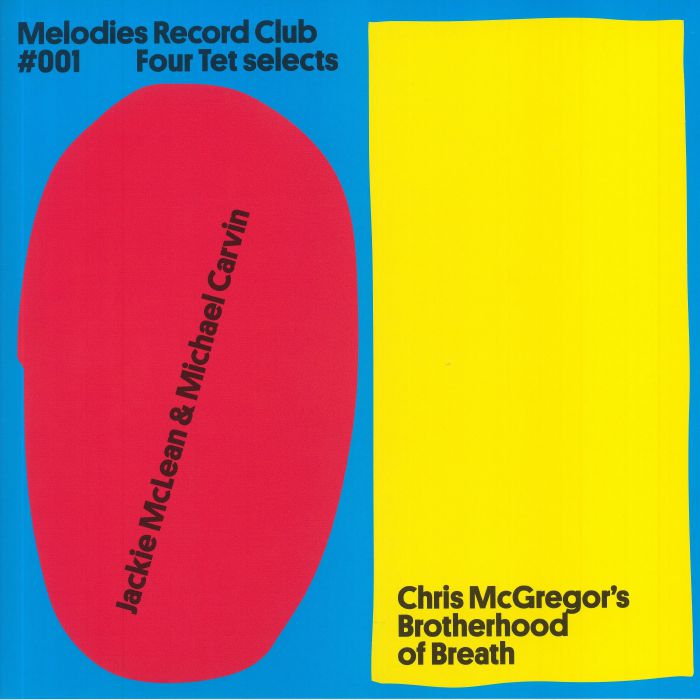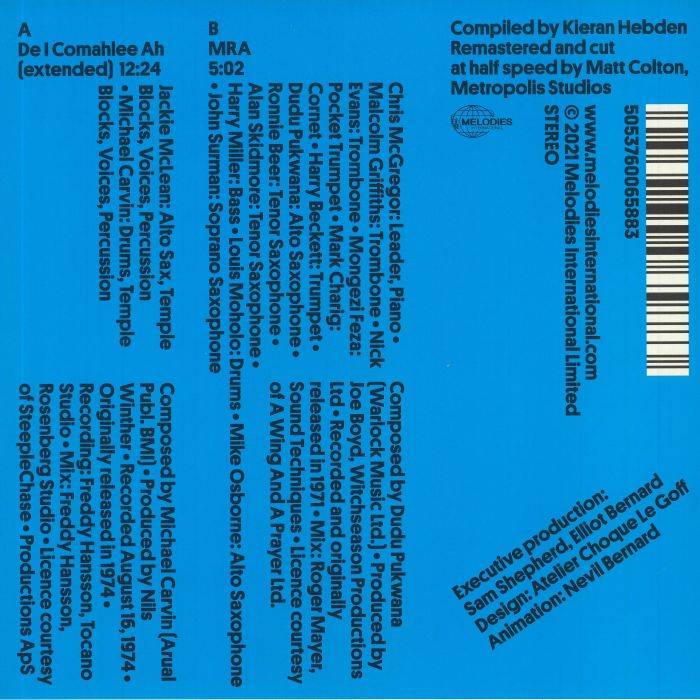Jump to: navigation, search
Christopher McGregor (24 December 1936 – 26 May 1990), was a South African pianist, bandleader and composer.
Chris McGregor was born in Somerset West, Western Cape, where his father, Murray McGregor was teaching at Hottentots’ Holland High School.
Both his father and his mother, Marjorie, were graduates of the University of Cape Town (UCT), where he would later study music.
Two years later the McGregor family moved to the Transkei, a move which pro-foundly influenced Chris’ musical development.
After schooling in the Transkei Chris, who had already at the age of five begun music lessons, went to UCT to read for a B. Mus degree. It was while at UCT that the sounds he had heard in the Transkei came alive in a new way for him as he was exposed to the music of the Cape townships.
Very soon he was paying attention to the likes of “Chris Columbus” Mra Ngcu-kana, “Cup and Saucer” Nkanuka and Dollar Brand (Abdullah Ibrahim) on the local scene, while listening to Charlie Parker, Thelonius Monk and Duke Ellington on records.
While at UCT Chris started to put together groups to play jazz concerts at UCT, as well as jamming in local clubs, like the Ambassador’s, the Vortex, and others. Other names who played on these sessions with Chris were reedman Morris Gold-berg and trombonist Dave Galloway.
In 1962 Chris took a group from Cape Town to the Castle Lager Jazz Festival at Moroka-Jabavu Stadium in Soweto, where the group came second in the small group section. More importantly, the festival brought together, although in different groups, Dudu Pukwana, Louis Tebugo Moholo, and Mongezi Feza. It was a meeting with long-range consequences and great meaning for South African music.
In 1963, having moved permanently to Johannesburg, Chris obtained sponsorship from a brewery company to put together a big band which, while it only lasted for three weeks, produced an album which is a classic of South African music called Jazz: The African Sound.
In 1964 the organisers of the Antibes Jazz Festival in France heard a tape of the group Chris had formed after the success of the big band and invited the group, by then known as The Blue Notes, to the festival in August of that year.
After a nation-wide tour to raise the funds necessary for the trip to France, the Blue Notes, by then comprising, in addition to Chris, Dudu Pukwana on alto, Nikele Moyake on tenor, Mongezi Feza on trumpet, Johnny Mbizo Dyani on bass and Louis Tebugo Moholo on drums, left via Mozambique. Their distinctive sound was never heard live again in South Africa.
Their 20-minute blow at Antibes was well received by both the listeners and the critics. Down Beat gave them very positive mention in its October 1964 report on the festival.
After the festival the Blue Notes worked for some time in Zurich before moving to Britain in late 1965 where they shook up the rather staid British jazz scene in a major way.
Gigs at Ronnie Scott’s and other places kept the group together but soon other in-fluences and forces were at work which made the individuals in the group go their own ways and form their own alliances with other musicians. This led to a rich web of contacts and musical experiences with the individual Blue Notes meeting and playing with leading musicians from both sides of the Atlantic.
In this way the blending of South African musical traditions with what was going on in the improvised music of the United States and Europe, which had begun back home, was given extra impetus and depth. A kind of critical mass was achieved and the Blue Notes were at the forefront of a whole new musical experience which continues to make waves 40 years later.
In this creative ferment Chris was hearing musicians who excited him and with whom he could work and his constant dream of a big band to put his ideas into practice began to be realised. These British based musicians included John Surman, Harry Beckett, Evan Parker, Marc Charig and others.
An exciting gig at Ronnie Scott’s brought together “Chris McGregor and Friends”, a big band mixing South African and British musicians. With this band Chris was at last able to explore and put into practice the many ideas he had as a result of the many different experiences he had been exposed to.
This gig was greeted with rave reviews and Chris looked for ways to keep the band going. In 1969 he formed the Brotherhood of Breath, using members of the big band formed around the South African rhythm section of himself, Harry Miller on bass and Louis Moholo on drums.
This band got its first recording break in 1970 with RCA using it for the launch of their new Neon label. This was followed in 1971 with a second RCA album entitled “Brotherhood.”
In 1973 Chris and his family moved to the south west of France in search of sun-shine and space. They purchased an old mill house, the Moulin de Madone, in the commune of St Pierre de Caubel, departement Monclar D’Agennaise.
Here the family lived in rural peace and made a sound base for Chris to return to after the rigours of the road with the band.
In the late 70s the Brotherhood faded from the scene for a while and Chris did a lot of solo and small group work with musicians he liked.
In the early 80s the Brotherhood got a new lease of life through the Angouleme Music Festival which put up the money for the band to practice for a few weeks around the festival.
By the late 80s the band was well-established on the festival and concert circuits and made thousands of new fans all over Europe, playing a lively music that had strengthened its ties to its African roots without shedding the lessons it had learned along the way. This was an exciting band with great soloists adding excitement to the disciplined and tight ensemble work.
A tour with Archie Shepp in 1989 started to open doors for Chris and the band, and by early 1990 a US tour was on the cards.
It was while working on arrangements for this tour that Chris became very ill and cancer was diagnosed. On 26 May 1990 he died after a brief but intense and pain-filled battle with the disease. The Brotherhood was at the time on tour in Europe and continued the tour as a memorial of Chris.
He described his music as being inspired by African village music: "the key isn't improvisation, yet the music is very alive - there's such a mix of old and new, solo and group." [1]
He also recorded three albums of solo piano improvisations.
Read more on Last.fm. User-contributed text is available under the Creative Commons By-SA License; additional terms may apply.



